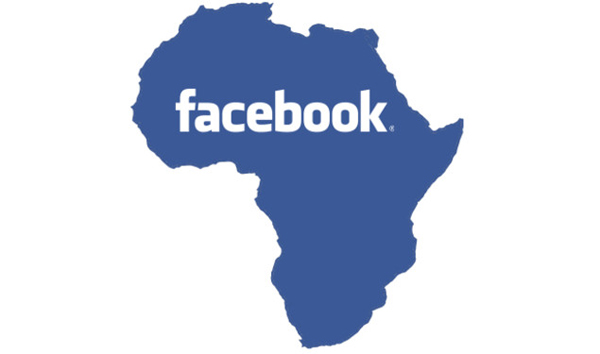Critics continue to shine a light on some of the difficulties that come with balancing business needs with public works.

SOURCE: FACEBOOK
In today’s era of increasing “conscious capitalism,” more companies than ever are seeking to do well by doing good, and social media titan Facebook(NASDAQ:FB) is certainly no exception.
Case in point, Facebook helped found its widely publicized Internet.org initiative in hopes of bringing the Internet to the two-thirds of the world’s population unable to access it. And in that vein, Facebook recently announced plans to launch a satellite to help expand Internet.org’s global impact.
However, not all parties universally agree that Facebook’s efforts are nearly as altruistic as Facebook might have you believe. Because as one recent article detailed, some users of Facebook’s free service argue Internet.org violates one of the most salient issues facing the Internet today.
Facebook takes to the skies
Earlier this month, Facebook CEO Mark Zuckerberg posted a brief update on his public profile posted detailing Internet.org’s upcoming plans to launch a satellite, in partnership with French satellite operator Eutelsat Communications. The satellite is currently under construction with its launch planned at some point next year. Named AMOS-6, the satellite will maintain a geosynchronous orbit over Africa to provide wireless Internet coverage for large swaths of western, eastern, and southern Africa.
The use of satellite technology here speaks to many of the inherent difficulties Internet.org faces in deploying coverage to such sweeping, and often times remote, spaces. In his profile update, Zuckerberg also touched on this challenge noting, “To connect people living in remote regions, traditional connectivity infrastructure is often difficult and inefficient, so we need to invent new technologies,” and high-altitude satellites represent only one of the several unconventional transmission mechanisms with which Facebook is experimenting. In a recent white paper, Zuckerberg also expressed interest in high-altitude drones and low Earth orbit satellites, versus the high-altitude geosynchronous orbit method AMOS-6 will use.
Thus far, Internet.org has been able to provide free online access to users in 19 nations across Asia, Latin America, and Africa. However, Facebook’s seemingly altruistic efforts have also recently encountered mounting criticism in some of the nations in which Internet.org operates.
Tough questions for Facebook
Without question, Internet.org seeks to provide a solution for an incredibly pertinent issue our society needs to address – how to make Internet access available across the entire developing world. However, as the initiative expands its increasingly global footprint, Facebook’s Internet.org has also endured some harsh criticisms that don’t seem entirely unfounded.
A fascinating piece from The Wall Street Journal [subscription required] recently recounted several firsthand consumer critiques of Internet.org, which at least some users lament blatantly violates the principles of net neutrality. For those in need of a refresher, net neutrality refers to the principle that Internet service providers (ISP) should treat all online content the same, meaning an ISP should not be allowed to charge or inhibit certain kinds of content in favor of others.
In terms of accessing the platform, Users either access Internet.org through a downloadable app from the Google Play Store or via a mobile browser page that enables users to access a number of curated websites like local news, sports, weather, and of course Facebook itself. However, users incur data charges should they try to deviate from those pre-selected sites, even to do something as innocuous as perform a basic Google search, and these restrictions form the core of opponents claims that Facebook has merely used Internet.org as a veiled Trojan horse to export its service to developing countries under the false pretense of corporate stewardship. Interestingly, and in a potentially telling demonstration of its true motives, Facebook recently rebranded the name of its mobile site and free app from Internet.org to “Free Basics by Facebook.”
Much like with Google’s Internet beaming balloon efforts Project Loon, I, and many others, saw the potential benefits Facebook might enjoy from bringing the Internet to the roughly 4 billion people without present access. And in its defense, Facebook correctly points out that some Internet access is better than none. And it’s also undeniable that social media companies like Facebook, Twitter, Pinterest, and the like will need to find innovative ways to expand their user bases in emerging markets as developing market growth slows.
To be sure, I’m not trying to make a moral argument one way or another here. However, this recent backlash certainly presents an interesting demonstration of the challenges companies like Facebook and Google face when attempting to grow their own businesses beyond their current ceilings, especially when branded as a public works.
The next billion-dollar iSecret
The world’s biggest tech company forgot to show you something at its recent event, but a few Wall Street analysts and the Fool didn’t miss a beat: There’s a small company that’s powering their brand-new gadgets and the coming revolution in technology. And we think its stock price has nearly unlimited room to run for early-in-the-know investors! To be one of them, just click here.
Andrew Tonner has no position in any stocks mentioned. The Motley Fool owns shares of and recommends Alphabet (A and C shares), Facebook, and Twitter. Try any of our Foolish newsletter services free for 30 days. We Fools may not all hold the same opinions, but we all believe that considering a diverse range of insights makes us better investors. The Motley Fool has a disclosure policy.


